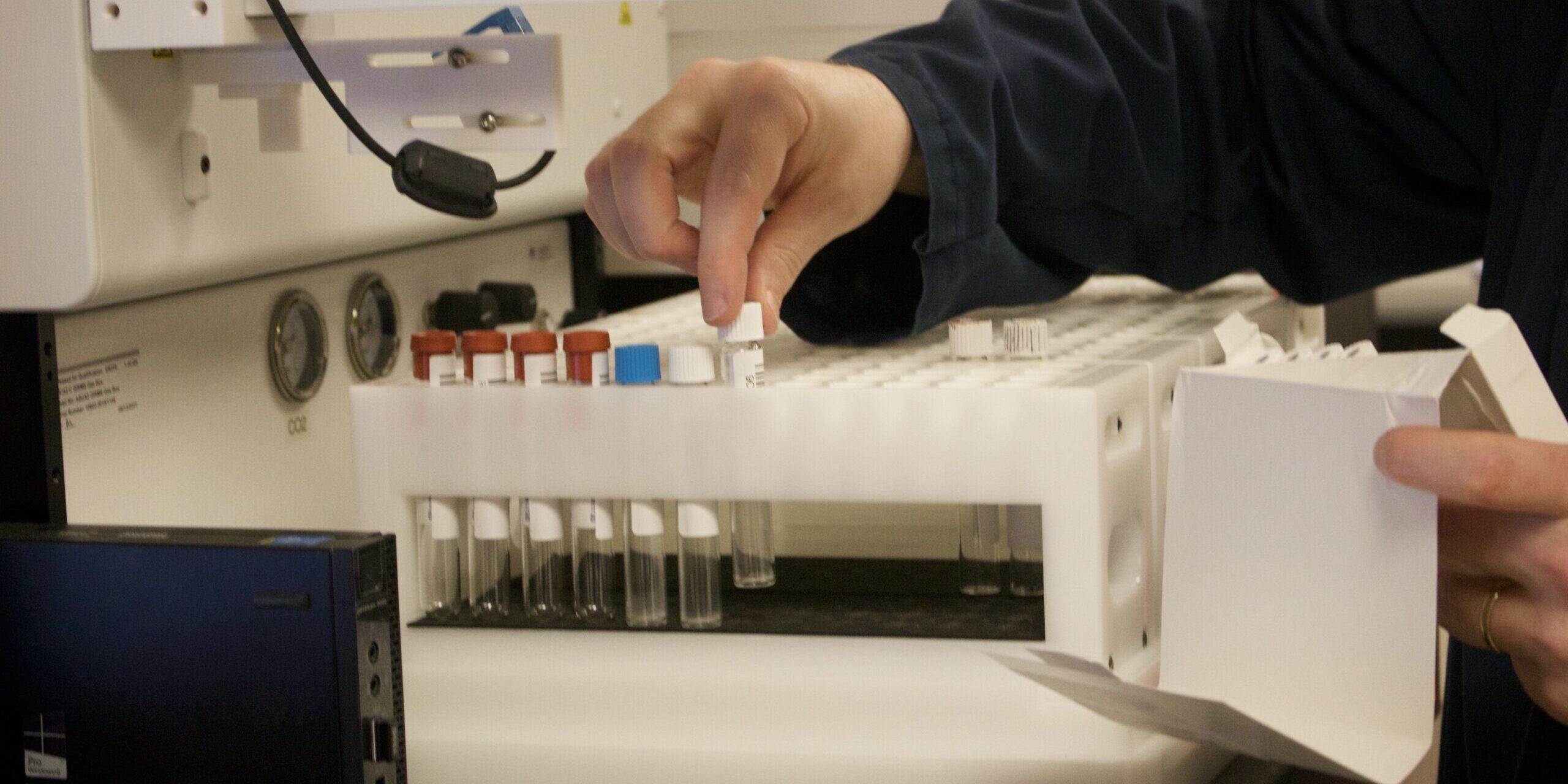Updated Standard of Care Clinical Guidelines Point to Cairn Diagnostics’ Breath Test for Evaluating Gastric Emptying and Diagnosing Gastroparesis
Brentwood, Tenn. — September 13, 2023 — Cairn Diagnostics, an innovative leader in providing cutting-edge FDA-approved breath tests intended for routine use in diagnostic medicine, today announced the inclusion of its 13C-Spirulina Gastric Emptying Breath Test (GEBT), in recently updated American, European and International Consensus Clinical Guidelines* for evaluation of gastric emptying and diagnosis of gastroparesis (“paralysis of the stomach”) in patients ages 18 years and older.
Gastroparesis is a debilitating disease in which the stomach empties at an abnormally slow pace and is defined by delayed gastric emptying in the absence of mechanical obstruction. It is characterized by recurrent symptoms such as nausea, vomiting, early satiety, postprandial fullness, abdominal discomfort, and pain. Gastroparesis has clinical origins arising from diabetes, hypothyroidism, nervous system disorders, autoimmune disorders, viral infections, surgery and idiopathic (unknown) reasons.
Awareness of gastroparesis in the clinical and obesity management community is increasing, with a growing number of gastroparesis cases now resulting from drug interventions such as narcotic pain medications and popular drugs used to treat diabetes and obesity. Semaglutide, in particular, is a drug that slows gastric emptying, making patients feel full and decreasing their appetite, which helps facilitate weight loss and improves glycemic control. Semaglutide is the active ingredient in familiar drugs such as Ozempic, Wegovy and Rybelsus. If these drugs are prescribed to patients that are unknowingly predisposed to gastroparesis, or if the dosage is not carefully titrated to recommended dosage protocols, this can induce moderate to severe gastroparesis.
Historically, clinical guidelines for diagnosis of gastroparesis have recommended using a radioactive 4-hour gastric emptying study conducted in a nuclear medicine center: a procedure known as Gastric Emptying Scintigraphy (GES). Today, clinicians and patients may alternatively choose Cairn’s innovative GEBT, a safe, non-radioactive, non-invasive, orally administered, FDA-approved, and standardized test to measure rates of gastric emptying and to help diagnose gastroparesis. GEBT does not require nuclear medicine imaging equipment, specially licensed facilities or personnel, or radioactive material. The test can be administered in a clinical practice or by virtually supervised telehealth conveniently in a patient’s home. Upon receipt of a patient’s breath samples at Cairn’s CLIA Laboratory, results can be reported within 24-48 hours. GEBT is now covered by Medicare (CMS) and is commercially available in the U.S.
“Gastroparesis affects over 5 million people in the U.S. I We have an obesity crisis (approximately 40 percent of Americans being overweight), along with high prevalence of gastroparesis in diabetics, serious gastroparesis-related adverse events associated with popular weight loss drugs, and reluctance to give deep sedation to patients scheduled for endoscopy or surgery who are taking semaglutide,” said Kerry Bush, President & COO, Cairn Diagnostics. “Given the significantly elevated gastroparesis conversation among physicians, these recently updated U.S., EU and international standard of care guidelines underscore the need for the GEBT– a more widely available method for helping to rapidly diagnose this disease and improve health outcomes.”
GEBT provides a more convenient, timely modality for assessing gastric emptying, particularly in susceptible populations such as diabetics, idiopathic gastroparetic patients, neurologically affected patients, and tender populations where radiation is best avoided. Examples include: patients and clinicians preferring to avoid radiation (gastroparesis is 4-times more prevalent in women than men); patients needing more than one evaluation; those living in smaller and rural communities where nuclear medicine assets are unavailable; and those encountering long scheduling times (up to 3 months) for the nuclear medicine procedure in major metropolitan areas (including academic medical centers), causing delays in evaluation and diagnosis. Contrary to nuclear medicine-based GES, GEBT is always conducted in exactly the same manner over a 4-hour period per Clinical Guideline recommendations.
GEBT was validated in FDA-approved, dual-labeled clinical validation studies (Mayo Clinic, Rochester) against the 4-hour radioactive Gastric Emptying Scintigraphy (GES) procedure, which is considered the conventional method of assessing gastric emptying and must be conducted in specially licensed nuclear medicine facilities.ii
About Cairn Diagnostics
Cairn Diagnostics provides safe, validated, standardized, FDA-approved, and conveniently administered diagnostic breath tests. The Company serves community-based practices and partners with university-based academic researchers, medical device, and pharmaceutical companies. Cairn received FDA approval for GEBT in 2015, expanded FDA approval of GEBT to include “at home” administration under virtual supervision in 2021, and inclusion in ACG and AGA Guidelines for evaluating Gastroparesis in 2022. Cairn also recently (2023) received FDA-approval for a new generation of high precision gas isotope ratio mass spectrometers (GIRMS) for analyzing GEBT breath specimens making analysis, test reporting and time to diagnosis even faster.
Cairn was also granted an exclusive CPT PLA Code (0106U) by AMA in July 2019, and received CMS (Medicare) coverage approval in July 2020. Medicare’s coverage decision for GEBT was based on the test’s “analytic and clinical validity as well as clinical utility in the diagnosis of gastroparesis.” iii The GEBT CPT code, Code Description, and Medicare payment rate was published in the National Clinical Laboratory Fee Schedule in January 2021. Cairn currently holds the intellectual property on 14 patents and one pending patent. For more information, visit www.cairndiagnostics.com
Media Contact:
Brian Willinsky
203-506-6942
brianwillinsky4@gmail.com
i. Centers for Disease Control and Prevention. Long-term Trends in Diabetes. CDC’s Div Diabetes Transl. Published online 2014.
ii. Szarka L, et al. A stable isotope breath test with a standard meal for abnormal gastric emptying of solids in the clinic and in research. Clinical Gastroenterology and Hepatology. June 2008; 6(6):635-643. Available at http://www.ncbi.nlm.nih.gov/pubmed/18406670.
iii. Jurisdictions JJ, JM and MolDx, Palmetto GBA, July 2020; Billing & Reimbursement – 13C-Spirulina GEBT. Accessed June 24, 2021. https://cairndiagnostics.com/billing/
* ACG Clinical Guideline: Gastroparesis: https://journals.lww.com/ajg/Fulltext/2022/08000/ACG_Clinical_Guideline__Gastroparesis.15.aspx?context=FeaturedArticles&collectionId=2







